Ducks waddling around a serene pond or gracefully gliding across the water are a common sight in many parks and natural settings. These charming creatures have captured the hearts of many with their quacks and quirky behaviours.
These feathered friends – can ducks eat mushrooms the world of avian dietary preferences is a fascinating realm, and understanding what our web-footed companions can safely consume adds another layer to appreciating their unique biology.
Can Ducks Eat Mushrooms
Types of Mushrooms for Ducks
In broader classification, mushrooms can indeed be categorized into two main types: cultivated and wild mushrooms. Cultivated mushrooms are those that are intentionally grown in controlled environments such as farms or indoor facilities.
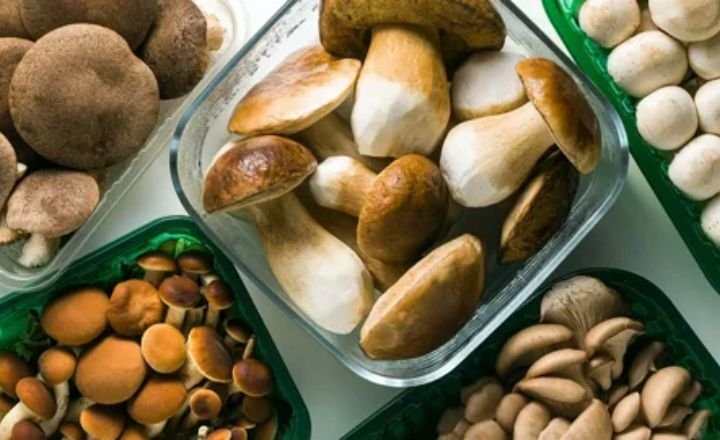
Common examples of cultivated mushrooms include button mushrooms, shiitake, and oyster mushrooms. These varieties are carefully cultivated to ensure consistency in size, shape, flavour, and texture.
Safe And Poisonous Mushrooms
Cultivated mushrooms found in stores are generally safe to consume as they are carefully cultivated and monitored for safety. These mushrooms are typically grown in controlled environments with specific growing conditions that minimize the risk of contamination or toxicity.
Edible Mushrooms For Ducks
Yes, it is generally safe to feed cultivated mushrooms to your ducks as long as they are safe for human consumption. Cultivated mushrooms like button mushrooms, portobello, and shiitake are typically safe for both humans and animals, including ducks.
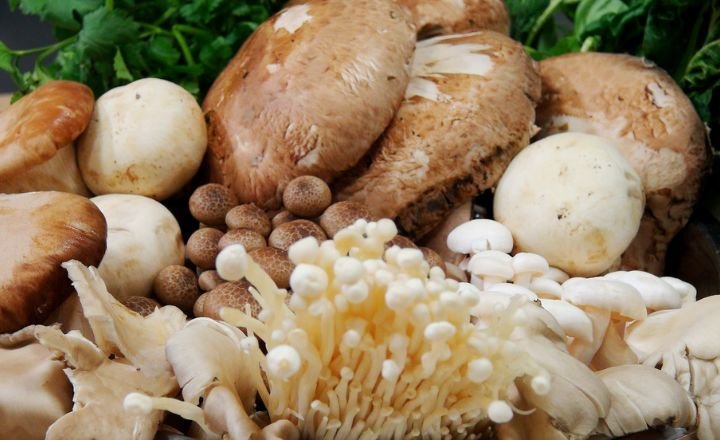
These types of mushrooms are commonly found in grocery stores and are less likely to cause any harm to your ducks.
Wild Mushrooms
Not all wild mushrooms are indeed poisonous, but it is essential to have the knowledge and understanding to differentiate between safe and toxic varieties. Without proper expertise, it is wise to avoid consuming any wild mushrooms as a precautionary measure.
Experienced foragers can sometimes make mistakes, so it is crucial to be cautious when harvesting or eating wild mushrooms.
There are many resources available, such as field guides and workshops, that can help individuals learn how to identify safe edible mushrooms. It is important to thoroughly research and educate oneself before venturing into foraging for wild mushrooms.
Poisonous Wild Mushrooms
It is crucial for anyone who enjoys foraging for wild mushrooms to be extremely cautious and knowledgeable about the different species. While it is true that only a small percentage of wild mushrooms are poisonous, the consequences of ingesting them can be severe.
Symptoms of mushroom poisoning in ducks can range from mild gastrointestinal issues like diarrhoea to more serious effects like lethargy and weakness. Certain types of toxic mushrooms, such as the Death Cap, Autumn Skullcap, Web caps, and Destroying Angels, are particularly dangerous and can even be fatal if consumed.
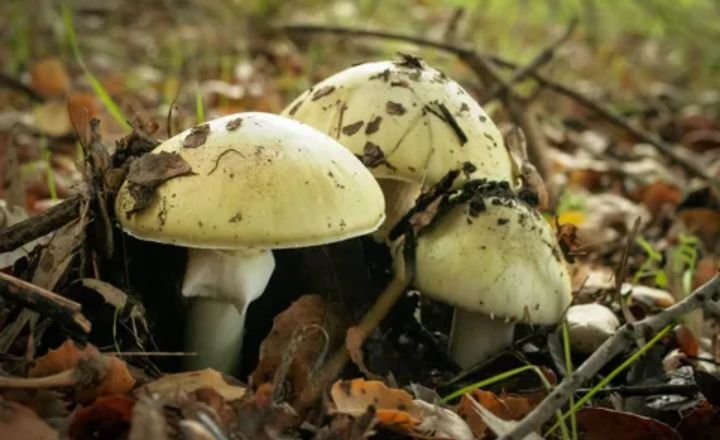
To protect your ducks from accidental poisoning, it is essential to thoroughly research and identify any wild mushrooms you come across before allowing your flock access to them.
Nutritious Value of Mushrooms For Ducks
Edible mushrooms are indeed a nutritional powerhouse packed with essential vitamins and minerals. One of the most prominent nutrients found in mushrooms is vitamin D, which plays a crucial role in bone health and immune function.
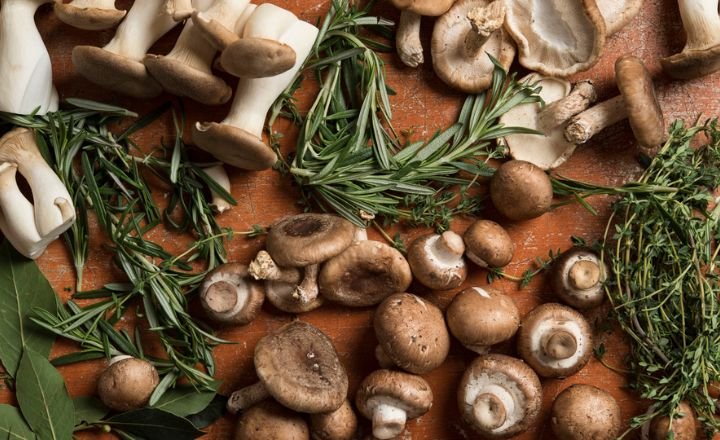
Mushrooms are a good source of B vitamins such as riboflavin, niacin, and pantothenic acid, which are important for energy production and metabolism.
Vitamins B1
Vitamin B1, also known as thiamine, plays a crucial role in maintaining the health of various organs in ducks. Mushrooms are indeed a rich source of Vitamin B1, which can help improve the performance of the brain, heart, and stomach. Thiamine is essential for proper nerve function, energy metabolism, and digestion in ducks.
Niacin
Yes, ducks can eat celery in moderation as part of a balanced diet. Celery is a nutritious vegetable that can provide vitamins and minerals to your ducks. It’s important to chop the celery into small pieces to prevent choking hazards for the ducks. Make sure that celery is given as a treat and not the main source of food for your ducks.
Vitamin C
Vitamin C is indeed a valuable nutrient found in mushrooms that can benefit your duck’s health in various ways. As a powerful antioxidant, vitamin C helps boost the immune system by protecting the body against harmful free radicals and supporting overall immune function. This can be particularly important for ducks to stay healthy and ward off infections or illnesses.
Calcium
Mushrooms can indeed be a beneficial addition to the diet of ducks due to their nutritional components. The presence of calcium in mushrooms can help strengthen the bones of ducks, improving their overall health and vitality.
Mushrooms contain iron which can prevent anaemia in ducks, ensuring they have optimal levels of this essential nutrient. Potassium in mushrooms can positively impact the cognitive ability of ducks, enhancing their mental sharpness and overall well-being.
The soluble fibre found in mushrooms can also aid in improving the digestive system of ducks by promoting smooth bowel movements.
With proteins that create enzymes and hormones in the body, mushrooms offer a range of benefits for the health and wellness of ducks when included as part of their diet.
Can Ducklings Eat Mushrooms?
Baby ducks can eat cultivated mushrooms, and it’s important to wait until they are at least four weeks old before introducing this food into their diet. At this stage, ducklings require a diet rich in protein to support their growth and development.
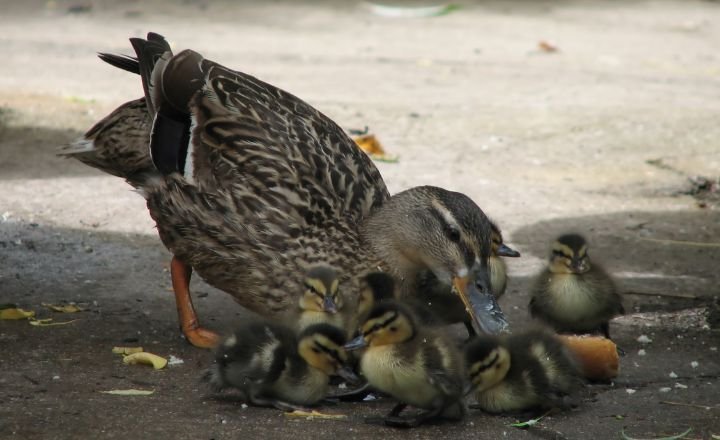
Mushrooms can be a good source of protein for young ducks, helping them meet their nutritional needs. It’s essential to ensure that the mushrooms given to baby ducks are safe and free from any harmful substances. Providing a balanced diet that includes a variety of foods is crucial for the health and well-being of your ducklings.
Raw or Cooked Mushrooms for Ducks
Ducks can eat both plain and processed mushrooms, so it is important to provide them in moderation. Mushrooms are a good source of nutrients for ducks, but they should not make up the majority of their diet.
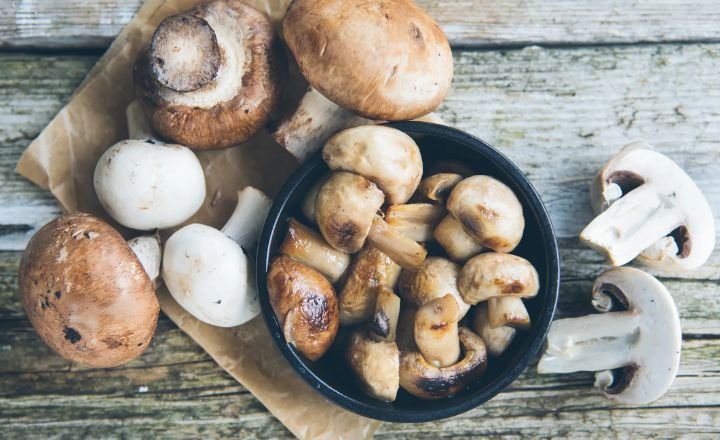
Boiling or roasting mushrooms before feeding them to your ducks can help make them easier to digest.
Edible Mushrooms
Ducks can enjoy a variety of edible mushrooms, it’s important to exercise caution when introducing new foods to their diet. White Button Mushrooms are a safe and popular choice for feeding ducks, as they are mild in flavour and easy for them to digest.
Oyster Mushrooms are another good option, providing a unique texture and taste that ducks may enjoy.
Black Trumpet Mushrooms and Porcini Mushrooms can also be fed to ducks in moderation.
These varieties offer different flavours and nutritional benefits, but it’s best to introduce them slowly and monitor your ducks’ reactions. Remember to always research the safety of any new food before offering it to your feathered friends, and consult with a veterinarian if you have any concerns about their diet.
Conclusion
Can Ducks Eat Mushrooms some species of mushrooms are safe for ducks to consume, it is generally recommended to err on the side of caution and avoid feeding them mushrooms altogether. Toxicity levels can vary greatly among different types of fungi, and it may be challenging for duck owners to identify which mushrooms are safe accurately.
Instead, provide your ducks with a balanced diet of seeds, grains, vegetables, and specially formulated duck feed to ensure their health and well-being. It is best to stick to commercially grown varieties that are safe for consumption and avoid wild mushrooms that may be toxic.
FAQs
Are there any benefits to feeding mushrooms to ducks?
Feeding mushrooms to ducks can provide a variety of nutritional benefits. Mushrooms are rich in vitamins, minerals, and antioxidants that can support the overall health and immune system of ducks.
How can I tell if a mushroom is safe for ducks to eat?
It is important to be cautious when feeding mushrooms to ducks, as many varieties can be toxic to them. To determine if a mushroom is safe for ducks to eat, it is recommended to consult with a veterinarian or an expert in avian nutrition.
What precautions should I take when offering mushrooms to ducks?
When offering mushrooms to ducks, it is important to exercise caution as not all types of mushrooms are safe for consumption by animals. Some varieties of mushrooms can be toxic and harmful to ducks, leading to serious health issues or even death.
